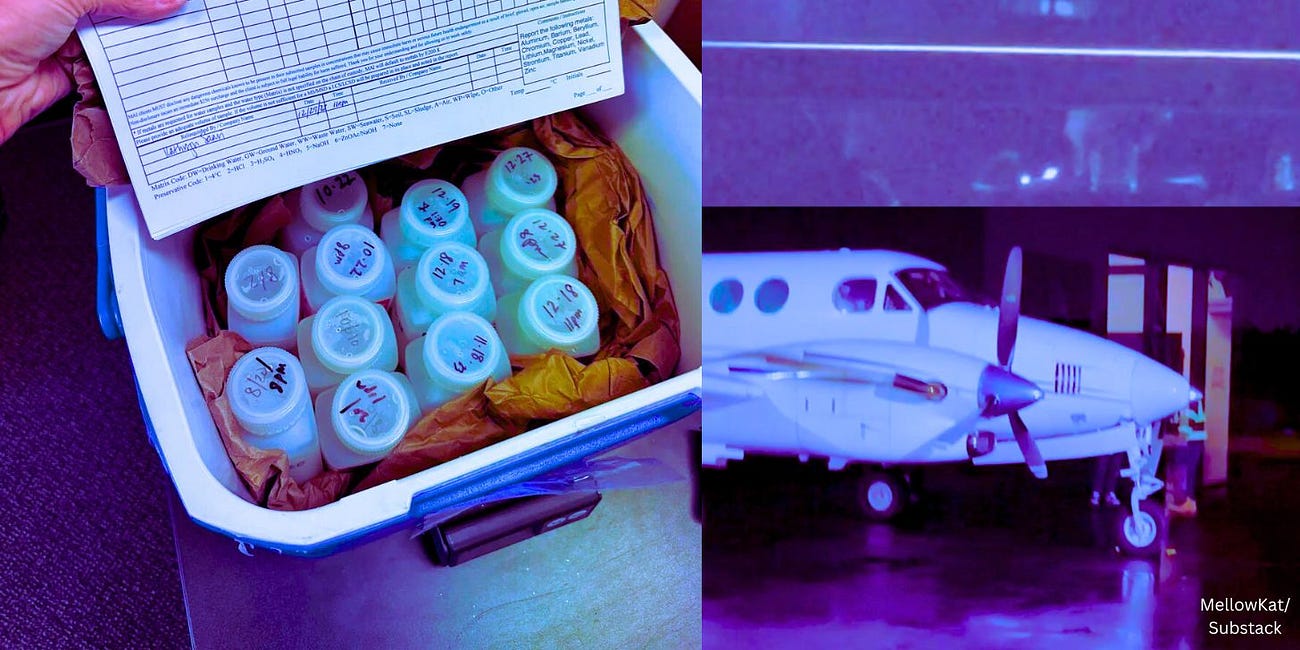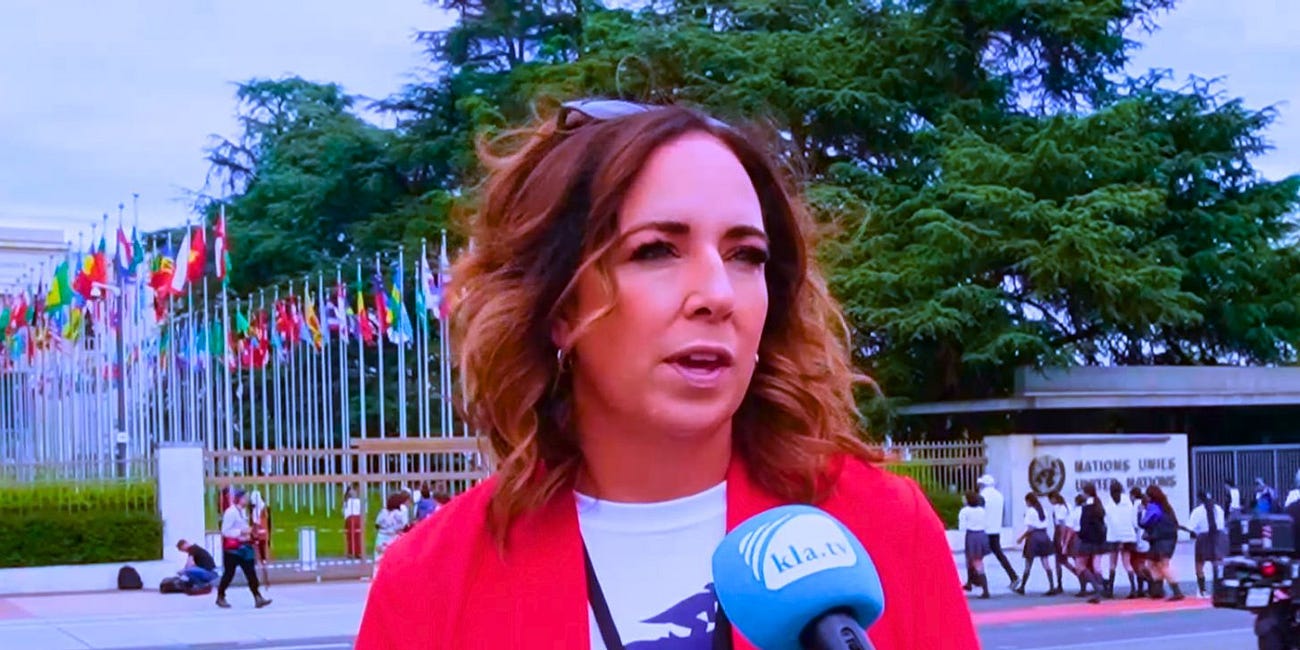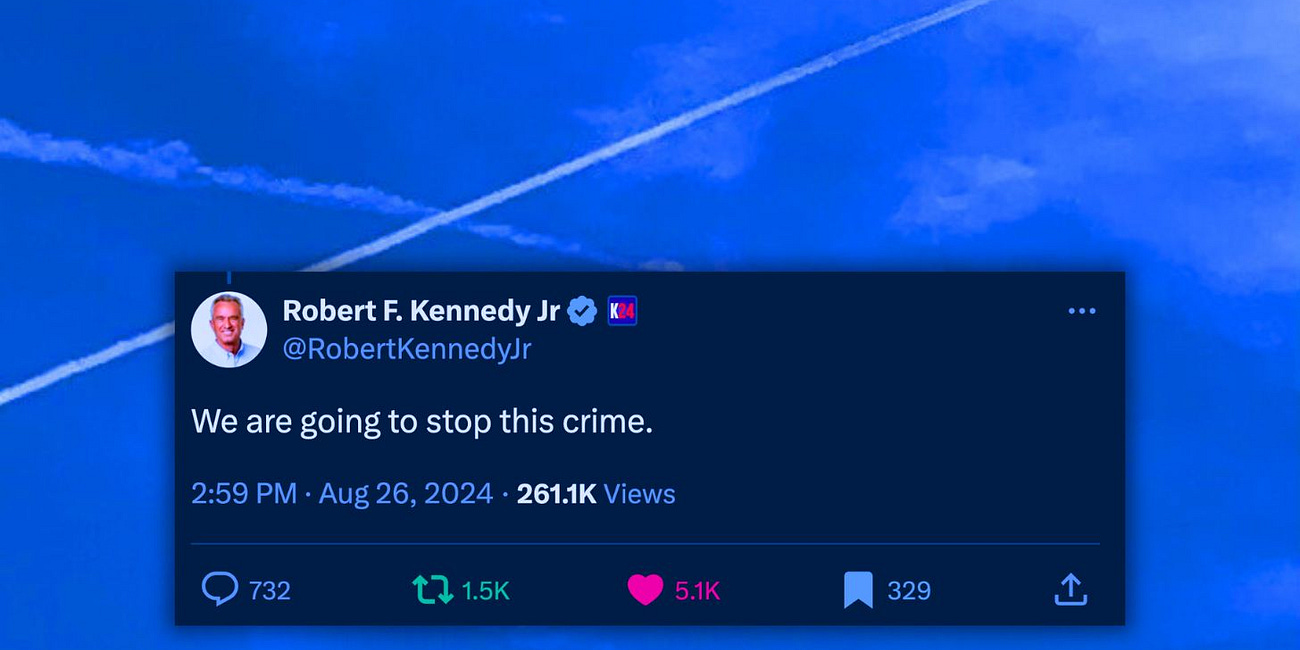Florida Bill to Ban Weather Modification Passes First Committee, Moves to Criminal Justice Committee
SB 56 prohibits activities that "affect the temperature, the weather, or the intensity of sunlight within the atmosphere" in the state.
A bill to ban weather modification in Florida cleared its first major hurdle today, passing out of the Senate Environment and Natural Resources Committee in a 6-3 vote.
Follow Jon Fleetwood: Instagram @realjonfleetwood / Twitter @JonMFleetwood / Facebook @realjonfleetwood
Senate Bill 56 (SB 56), introduced by Sen. Ileana Garcia (R) and co-sponsored by Rep. Tom Leek (R), now moves to the Criminal Justice Committee for further consideration.
What the Bill Does
SB 56 would prohibit any activities intended to “affect the temperature, the weather, or the intensity of sunlight within the atmosphere” in the state.
It also repeals decades-old weather modification laws that required operators to obtain state licenses and report activities.
If passed, the legislation would take effect on July 1, 2025.
Legislative Path Forward
Before reaching a full vote in the Senate, SB 56 must first pass through the Criminal Justice Committee and the Rules Committee.
After that, it will advance to the Senate floor for final consideration, possibly sometime after March.
Bill Provisions
SB 56 would:
Repeal all state provisions allowing weather modification licensing and oversight.
Ban any activities intended to modify Florida’s atmosphere, including altering temperature, precipitation, or sunlight exposure.
Shift enforcement of weather modification bans to the criminal justice system.
Decades of Quiet Weather Modification Oversight Now in Question
SB 56 does more than just prohibit future weather modification—it exposes the fact that Florida has long regulated these activities under state law.
The bill repeals Sections 403.281 through 403.401 of Florida’s legal code, statutes that quietly governed weather modification for years.
Florida’s existing weather modification laws established a licensing framework that included:
Approval and oversight for weather-altering operations.
Proof of financial responsibility for potential damages.
Requirements to publish public notices before conducting weather modification.
Detailed record-keeping and reporting mandates.
This means Florida has long acknowledged, permitted, and regulated weather modification activities—directly countering claims that such operations are conspiracy theories.
Instead of merely regulating these programs, SB 56 moves to eliminate them entirely.
Chemtrails, Hurricanes, and Federal Roadblocks
The bill follows mounting public concern over aerosol injection programs, commonly referred to as ‘chemtrails,’ which involve dispersing dangerous substances into the atmosphere.
Critics argue these programs manipulate weather, impact human health, and alter natural ecosystems without public consent.
Additionally, claims that recent hurricanes Helene and Milton were artificially manipulated have fueled urgency for SB 56’s passage.
Florida now joins Tennessee, where Gov. Bill Lee signed a similar bill into law last year—though Tennessee officials have since argued that federal laws prevent them from enforcing it.
That federal hurdle will likely be a challenge for Florida as well, but SB 56 forces a legal showdown over whether states have the right to reject weather modification within their own borders.
A National Precedent?
A 2010 report published by the U.S. Government Accountability Office implies billions of taxpayer dollars have been spent over the past few decades on geoengineering efforts.
Former U.S. Air Force officer Kristen Meghan, a bioenvironmental engineer turned whistleblower, has been exposing the military’s involvement in large-scale weather modification programs after discovering she had been unknowingly approving hazardous chemicals for atmospheric release.
Moreover, in June 2023, the White House Office of Science and Technology Policy (OSTP) released a congressionally mandated report suggesting that both global and regional geoengineering projects are being carried out “covertly,” without citizens’ knowledge.
Page 43 of the document confirms the U.S. government “conducts or funds limited research into solar radiation modification” (SRM), which involves the use of airplanes or balloons to disperse potentially dangerous chemicals into the stratosphere to reflect sunlight away from Earth.
SRM is practiced in the name of so-called “climate change,” according to advocates.
The same page of the White House document also confirms that U.S. Congress has been directing the National Oceanic and Atmospheric Association (NOAA) to fund SRM research “for the last several years.”
If passed, SB 56 will likely be the strictest anti-weather modification law in the country, setting the stage for other states to follow suit.
With increasing public scrutiny over the lack of disclosure surrounding atmospheric manipulation, Florida’s push to ban weather modification could trigger a nationwide legislative movement.
With SB 56 now heading to the Criminal Justice Committee, the next phase of the legislative process will determine whether the bill moves forward toward final approval.
Chemtrail Pilots Confronted at 1:30 AM: 'We Are Watching'
A California resident tracking cloud seeding operations took direct action, reportedly confronting pilots engaged in geoengineering over Tuolumne County after years of ignored concerns.
Operation 'Large Area Coverage' (LAC): U.S. Gov't Covertly Sprays Airborne Toxic Chemical Agent on Unsuspecting Americans in Secret Bioweapons Experiment
In the 1950s and 1960s, Stanford University and the U.S. Army Chemical Corps conducted aerial dispersion tests using military transport aircraft that exposed unsuspecting Americans to fluorescent zinc cadmium sulfide (ZnCdS) particles, as part of …
Ex-U.S. Air Force Officer Exposes Government's Weather Modification and Chemtrail Activities (Video)
Kristen Meghan, a former U.S. Air Force officer who specialized in bioenvironmental engineering, has come forward with allegations that the U.S. government is involved in weather modification through the use of hazardous chemicals, a practice often referred to as “chemtrails.”
Tennessee Says It Can't Enforce 'Chemtrail' Ban Because Federal 'Clean Air Act' Enforced by FAA Won't Let Them
Tennessee authorities are claiming they can’t enforce recently passed legislation in their state that prohibits geoengineering practices involving the release of chemicals into the sky, what some call “chemtrails,” because the state doesn’t have jurisdiction.
RFK Jr. Vows to End Chemtrails: 'We Are Going to Stop This Crime'
Robert F. Kennedy Jr. (RFK Jr.) on Monday vowed to stop airplanes from carrying out the “crime” of spraying chemicals, often referred to as “chemtrails,” into the sky behind them as they fly for geoengineering purposes.










They may say it is being done “covertly”, but all anyone with intelligence needs to do is look up at the sky to know we are being sprayed. It’s pretty obvious when the lines start spreading into odd clouds and they all crisscross and go back and forth so not normal plane traffic.
Yes, we passed a law in TN and the FAA pretty much thumbed their nose at us and said too bad. What Florida needs to do with their law is make it a felony and start prosecuting pilots and companies. Regardless of contracts.
After all, isn’t poisoning people attempted murder?
What can I do. Idaho received USAID to spray our skies and it goes until 2027. I have contacted my governor and legislators and they lie and say those trails are harmless and from commercial airlines.